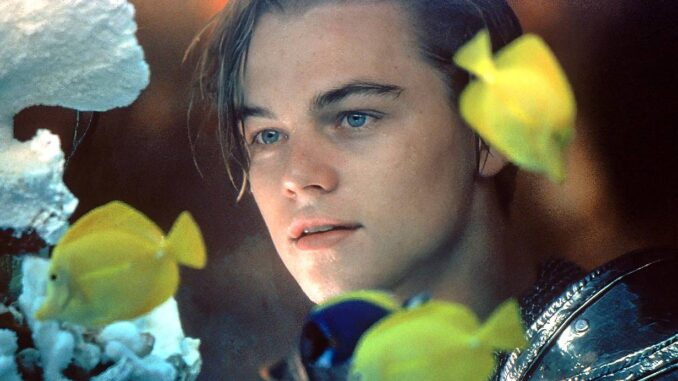
The 90s DiCaprio: A Decade Forged in Beauty and Burning Ambition, Ranked
The 1990s. A time of flannel shirts, dial-up internet, and the undeniable rise of Leonardo DiCaprio. More than just a pretty face, he navigated the decade with an astute eye for compelling narratives, showcasing an acting range that quickly transcended the "teen heartthrob" label. Examining his 90s filmography is a fascinating journey through a career being meticulously crafted, a process that saw him transform from supporting player to bona fide leading man. Ranking these films, from the peak of his early promise to the occasional misstep, reveals not only the trajectory of his career but also the enduring power of some truly iconic cinema.
At the summit, rightfully perched as his 90s masterpiece, is "What's Eating Gilbert Grape" (1993). This isn't just a good DiCaprio performance; it's a transformative one. As Arnie Grape, a mentally handicapped teenager in rural Iowa, he vanishes completely into the role. The wide-eyed wonder, the uncontrolled tics, the raw vulnerability – it's a portrayal of unwavering authenticity and emotional depth that belies his age. Paired with Johnny Depp's subtly heartbreaking performance as his caregiver brother, the film is a poignant exploration of family, responsibility, and the quiet struggles of everyday life. DiCaprio’s nomination for an Academy Award was not just a recognition of talent, but a signal that a new force had arrived.
Slipping just slightly below is "Romeo + Juliet" (1996). Baz Luhrmann's hyper-kinetic, visually arresting adaptation of Shakespeare's classic is a stylistic tour-de-force. While the bold aesthetic might not be for everyone, DiCaprio embodies the lovelorn Romeo with a raw passion that cuts through the film's frenetic energy. His Romeo is not just poetic; he's visceral, heartbroken, and deeply in love. The chemistry with Claire Danes is undeniable, and their tragic romance resonates even amidst the modern backdrop of guns and Hawaiian shirts. This film solidified DiCaprio's status as a leading man and introduced Shakespeare to a new generation.
Next, we have "Titanic" (1997), a cultural phenomenon that needs little introduction. While some might argue it's more of a showcase for spectacle than genuine acting, DiCaprio's portrayal of Jack Dawson is undeniably charming and charismatic. He embodies the free-spirited artist who captures Rose's heart, bringing a relatable warmth to a larger-than-life tragedy. "Titanic" is not his most nuanced performance, but it’s arguably his most iconic, forever etching him in the annals of Hollywood history. It launched him into the stratosphere of superstardom, a position he’s deftly maintained.
Further down the list, we find "The Basketball Diaries" (1995). This gritty, autobiographical drama explores the descent into drug addiction of a high school basketball player. While the film itself can be uneven, DiCaprio’s performance as Jim Carroll is raw and unsettling. He captures the torment of addiction with a chilling realism, showcasing his willingness to tackle challenging and complex roles. It’s a powerful and often overlooked performance that demonstrates his commitment to pushing his boundaries.
Coming in around the middle is "Total Eclipse" (1995). This controversial biopic about the tumultuous relationship between poets Arthur Rimbaud and Paul Verlaine features a daring and provocative performance from DiCaprio as the young Rimbaud. While the film itself is often criticized for its melodramatic tone and historical inaccuracies, DiCaprio’s portrayal of the rebellious and charismatic poet is undeniably captivating. He embraces the character's flaws and complexities, showcasing a willingness to take risks that set him apart from his contemporaries.
Near the bottom, we have "Marvin's Room" (1996). While the film boasts an impressive ensemble cast including Meryl Streep and Diane Keaton, DiCaprio's role as a troubled teenager struggling with his family dynamics feels somewhat underdeveloped. He delivers a solid performance, but the film's focus is primarily on the other characters, leaving him with limited opportunities to truly shine. It's a good supporting role in a well-intentioned film, but not a standout in his 90s oeuvre.
Finally, at the very bottom of the list, sits "This Boy's Life" (1993). While it's unfair to completely dismiss the film, DiCaprio's performance is overshadowed by Robert De Niro's dominating presence as the abusive stepfather. While he holds his own, showcasing a spark of the talent to come, the film ultimately serves as a showcase for De Niro's commanding performance. It's a valuable learning experience for the young actor, but not a highlight of his 90s work.
The 1990s were a formative decade for Leonardo DiCaprio. From the emotionally resonant "What's Eating Gilbert Grape" to the global phenomenon of "Titanic," he consistently demonstrated a commitment to challenging roles and a dedication to honing his craft. While not every film was a critical darling, each played a crucial part in shaping the actor we know today. This ranking, though subjective, highlights the journey of a young man with burning ambition, forging a path to becoming one of the most respected actors of his generation. He emerged from the decade not just as a star, but as a serious actor, ready to conquer the new millennium and leave an indelible mark on the landscape of cinema.